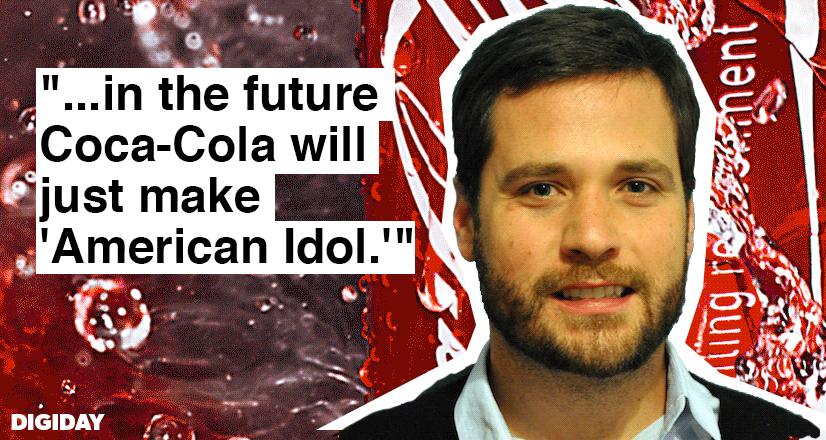Save 50% on a 3-month Digiday+ membership. Ends Dec 5.

After nearly three years as publisher of The Awl and its network of sites, John Shankman, 32, is boot-strapping his own venture, Hashtag Labs. The company will act as both a production studio for branded media and a consultancy for publishers looking to bone up on everything from understanding programmatic to implementing a native ad strategy. Shankman likened it to “talent agency” for brands that want to be publishers.
Digiday spoke with Shankman about the proliferation of brand-created media, the competitive landscape for content marketing shops and whether it will ever be as well produced and widely consumed as non-commercial media. Shankman, naturally, thinks it will be.
What’s going to make Hashtag Labs successful?
The major driver behind this is that distribution has been equalized. A brand like Coca-Cola with 82.9 million Facebook fans has as much distribution power as the networks used to have. The gatekeeper has been taken away, and now production is where the value’s at.
Doesn’t the brand just become the gatekeeper then?
Absolutely. But brands need to create interesting content they can put out and distribute. Instead of a network funding the production, now the brand will. It used to be Coca-Cola could advertise on “American Idol,” but in the future Coca-Cola will just make “American Idol.” Coca-Cola will just work with the production company instead of Fox.
Where will media companies fit into this structure?
People are going to want to consume content from a certain point of view. Niche publishers that have a unique point of view are going to continue to thrive. These are the publishers brands will want to work with to create content for them. Then there’s a second tier where a brand will sponsor what a publisher is doing without inserting any creative direction.
So there’s a way to do branded media without, as some have called it, whoring yourself out?
There’s going to be a second tier that has the passion of the creator behind it. And in order for a brand to be attached to it, the creator needs to keep control.
But isn’t that the central dilemma of branded content? Brands want access to the most talented creators, but they can’t get it unless they work with the edit side.
Yeah, but the freelance network is really growing. We’re not going to ask a reporter from The New York Times to do branded content. But there’s no reason we can’t find a freelancer who once wrote for The New York Times. If we find the right project for them and it pays well, that’s a good opportunity. Hashtag Labs is about making both the brand and creator feel good about what they’re doing.
Ad position: web_incontent_pos1
Are editorial people warming up to the idea of working for a brand?
Definitely, but you have to find the right project. It’s important to delineate between entertainment, profit-driven media and truth-driven media. “Breaking Bad” is a good example. It wouldn’t make a difference if AMC made it or BMW.
A brand would finance a show about a sadistic drug dealer?
In 20, 30 years, yeah.
That’s interesting since right now sponsored content doesn’t perform well.
We need to prove that these branded productions can actually be as high quality as editorial.
Are you worried that branded content is becoming too crowded?
Yeah. If I was talking about this three years ago, it’d be awesome. Ideas are just ideas. It’s proven that execution is really where it’s at.
More in Marketing

Ulta, Best Buy and Adidas dominate AI holiday shopping mentions
The brands that are seeing the biggest boost from this shift in consumer behavior are some of the biggest retailers.

U.K. retailer Boots leads brand efforts to invest in ad creative’s data layer
For media dollars to make an impact, brands need ad creative that actually hits. More CMOs are investing in pre- and post-flight measurement.
Ad position: web_bfu